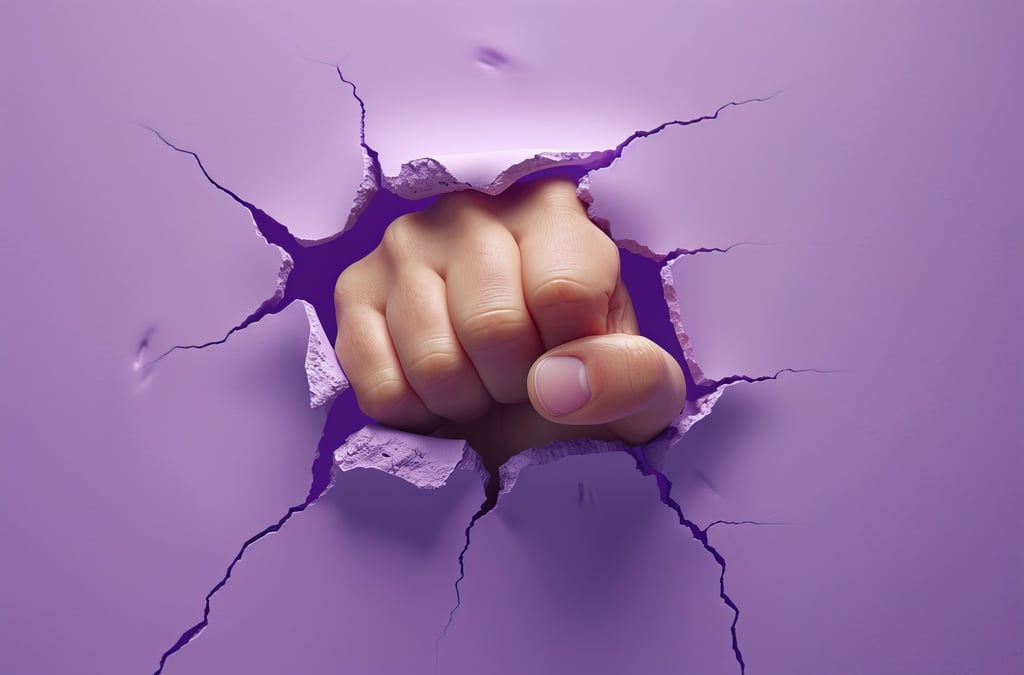Why Do People Enjoy Watching Violent Content?
Why Do People Enjoy Watching Violent Content? Ultimately, individual reactions vary—some enjoy it as harmless entertainment, while others find it disturbing.
HUMAN BEHAVIOR
K.N.
7/15/20254 min read


Violence - The Impact on Society
Violence is a complex and multifaceted issue that unfortunately continues to plague our society. It can take many forms, from physical aggression and assault to psychological manipulation and emotional abuse. The root causes of violence are often rooted in factors such as poverty, inequality, lack of access to education, resources, and cultural norms that perpetuate aggression. Addressing violence requires a multifaceted approach that includes implementing effective prevention strategies. Providing support services for victims, holding perpetrators accountable, and challenging societal attitudes that tolerate or condone violent behavior. Everyone has a role to play in preventing violence by practicing empathy. Promoting understanding and actively working towards creating a more peaceful and compassionate world for all.
People enjoy watching violent content for a variety of reasons
People enjoy watching violence. Violence is a complex and multi-faceted issue that can manifest in various forms. One common reason is the thrill and adrenaline rush that comes from seeing intense action sequences or fight scenes. Many people have a violent side that they are not able to express, except in certain sports. So, they turn to the media for an outlet. The tension and anticipation that violence creates, may be what draws people in. Some believe that people enjoy the action rather than the violence itself. Violence can also provide a chance to contemplate the meaning of life.
Throughout history, violence has always captured attention. Sabrina Zax a film studies major, believes that people enjoy violent content because it gives them an adrenaline rush. When watching a tense scene in a movie or TV show. The brain and adrenal glands release chemicals that can create a sense of tension.
People expressions to the violence
Additionally, some people may be drawn to violent content. Because it provides an escape from reality and allows them to experience emotions. And situations that they may not encounter in their day-to-day lives. Watching violence on screen, can also serve as a form of catharsis. Allowing viewers to release pent-up emotions or frustrations in a safe and controlled environment. Ultimately, each individual's reasons for enjoying violent content will vary. But it often comes down to the visceral reactions and emotional experiences that it elicits.
After witnessing violence, many people appreciate the opportunity to reflect on the human condition. Some theories suggest that the excitement from watching violence lasts until the end of the film. Making the experience more fulfilling. Jackson Raines believes that people enjoy the way violence makes them feel excited. The "Forbidden fruit hypothesis" proposes that the appeal of violence lies in its forbidden nature. As warning labels on violent content often pique interest.
People enjoy watching violent movies and sports, because it provides a way to express their internal violence in a society. Where certain behaviors are deemed acceptable or unacceptable. Despite the graphic nature of movie violence, it does not carry the same negative connotations as other types of content. Overall, people seem to have a fascination with violent content in the media. Whether it's in a TV show or a movie. Individuals are drawn to it, because it excites them. Satisfies their anticipation and allows them to express their internal violence or anger. People simply love what they see on TV.
Social media violence
The people have a tendency to enjoy watching violence shared on social media channels. Social media violence refers to the disturbing trend of individuals using online platforms to perpetuate. And glorify acts of aggression or harm towards others. Whether it's through cyberbullying, dehumanizing comments, or even sharing graphic images of violence.
Social media has become a breeding ground for toxic behavior. This can have serious consequences not only for the victims who are targeted but also for society as a whole. The anonymity and distance provided by the internet. Often embolden individuals to say and do things, they would never consider in person. Leading to an escalation of conflict and harm. It's important for users to be mindful of their words and actions online. As they have real-world implications that can deeply affect others' well-being. Let's strive to create a more positive and respectful online community. By rejecting violence in all its forms on social media platforms.
The appeal of violent content in movies, TV shows, video games, and other media is a complex psychological and social phenomenon. While it may seem counterintuitive that people enjoy violence, several theories explain why it can be compelling:
1. Catharsis Theory
Some believe that watching violent content allows people to release pent-up aggression in a safe, controlled way.
By experiencing violence vicariously, they may feel a sense of emotional relief without acting violently in real life.
2. Excitement & Adrenaline Rush
Violent scenes often create tension, suspense, and excitement, triggering an adrenaline response.
This can be thrilling in the same way that horror movies or extreme sports are—people enjoy the rush without real danger.
3. Moral Satisfaction & Justice
Many stories frame violence as a means of justice (e.g., heroes defeating villains).
Audiences may enjoy seeing "deserving" characters punished or evil forces overcome, which reinforces a sense of moral order.
4. Psychological Fascination with Taboos
Humans are naturally curious about dark or forbidden subjects, including violence and death.
Watching violent content can be a way to explore these themes without real-world consequences.
5. Social & Evolutionary Factors
Some researchers suggest that humans have an evolutionary interest in conflict (e.g., survival instincts, dominance hierarchies).
Violent stories may tap into primal instincts related to competition, power, and survival.
6. Desensitization & Habituation
Repeated exposure to violent media can make it seem less shocking over time, leading some to seek out even more extreme content for the same level of stimulation.
7. Identification with Characters
When audiences connect with a protagonist, they may enjoy their violent triumphs as if they were their own (e.g., rooting for an action hero in a fight scene).
8. Escapism & Fantasy Fulfillment
Violent content often exists in exaggerated, unrealistic settings (e.g., superhero battles, war epics).
People may enjoy the fantasy of power, control, or revenge that they wouldn’t act on in reality.
Criticisms & Concerns
While many people consume violent media without issue, debates continue about its effects:
Desensitization: Some studies suggest excessive exposure can reduce empathy.
Copycat Behavior: Rare cases link media violence to real-life aggression.
Moral & Ethical Questions: Does glorifying violence normalize it?
Ultimately, individual reactions vary—some enjoy it as harmless entertainment, while others find it disturbing. Cultural norms, personal experiences, and psychological traits all play a role in why people are drawn to violent content.
Thanks for reading
Subscribe, read new articles and support our work along the way.
Similar Posts
Life Is Tough Make It Chillable!
LITMICH © 2025. All rights reserved.


Please follow us & like us:
Contact Us
